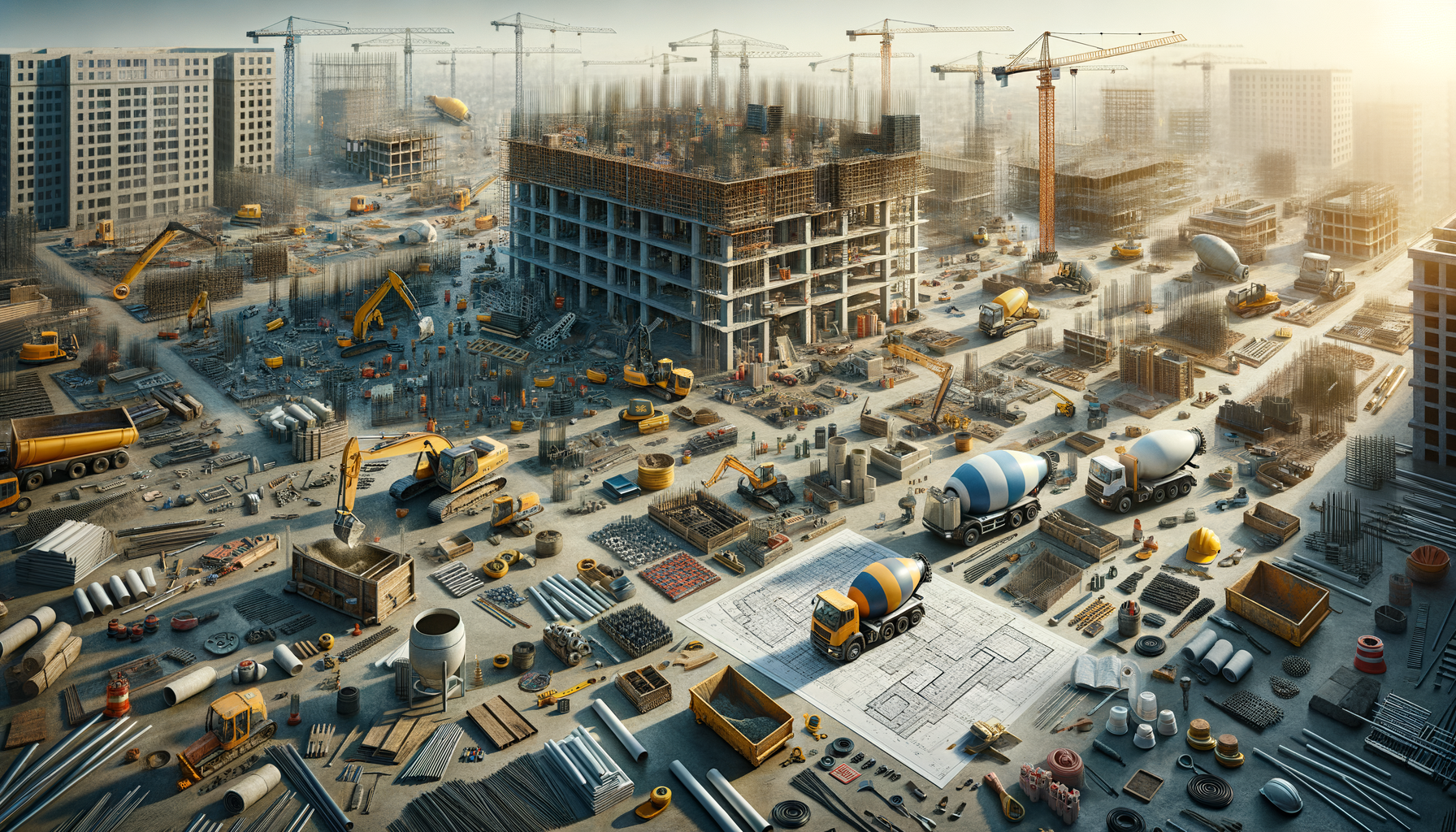The Growing Importance of Construction Jobs
Construction jobs play a pivotal role in shaping the physical landscape of our communities. They are essential for building homes, commercial spaces, infrastructure, and more. As urbanization continues to rise, the demand for skilled construction workers is also increasing. This sector not only contributes significantly to the economy but also provides numerous employment opportunities, making it a cornerstone of economic development.
The construction industry is vast and varied, encompassing roles such as architects, engineers, project managers, and skilled laborers. Each role is crucial in ensuring the successful completion of projects. Moreover, construction jobs are known for their resilience, often remaining stable even during economic downturns due to the constant need for maintenance and new developments.
In recent years, technological advancements have further enhanced the importance of construction jobs. Innovations such as Building Information Modeling (BIM) and 3D printing are transforming the industry, making processes more efficient and reducing costs. As a result, there is a growing need for workers who are not only skilled in traditional construction techniques but also adept at using new technologies.
Diverse Career Paths in Construction
The construction industry offers a wide range of career paths, catering to various skill sets and interests. Whether you are interested in hands-on work or prefer management and planning, there is likely a role that suits you. Some of the key career paths include:
- Skilled Trades: Carpenters, electricians, and plumbers are vital to any construction project. These trades require specific training and certifications but offer rewarding and stable career options.
- Project Management: For those who excel in organization and leadership, project management roles involve overseeing construction projects from start to finish, ensuring they are completed on time and within budget.
- Design and Engineering: Architects and engineers are responsible for designing structures and ensuring they are safe and functional. These roles require a strong background in mathematics and science.
Additionally, construction jobs can lead to entrepreneurial opportunities, such as starting your own construction firm or consultancy. The industry is dynamic, offering numerous opportunities for career advancement and specialization.
Challenges Facing the Construction Industry
While construction jobs offer many opportunities, the industry also faces several challenges. One of the most significant issues is the shortage of skilled labor. As the older generation of construction workers retires, there is a growing gap in the workforce that needs to be filled by younger, trained professionals.
Another challenge is the need to adapt to new technologies and sustainable practices. As environmental concerns become more pressing, the construction industry must find ways to reduce its carbon footprint and embrace eco-friendly materials and processes. This shift requires investment in training and development to equip workers with the necessary skills.
Furthermore, construction projects often face regulatory hurdles and financial constraints. Navigating complex regulations and securing funding can delay projects and increase costs. Effective project management and strategic planning are essential to overcoming these obstacles.
The Role of Technology in Modern Construction
Technology is revolutionizing the construction industry, making it more efficient and sustainable. Tools like Building Information Modeling (BIM) allow for detailed 3D representations of projects, enabling better planning and collaboration among stakeholders. This technology helps identify potential issues early in the project, saving time and resources.
In addition to BIM, drones are being used for site surveys and inspections, providing accurate data quickly and safely. This technology reduces the need for manual labor and enhances safety by minimizing the risk of accidents on site.
Moreover, the use of 3D printing in construction is gaining traction. This innovative method allows for the rapid production of building components, reducing waste and lowering costs. As these technologies continue to evolve, they will create new opportunities and challenges for construction workers, requiring ongoing education and adaptation.
Conclusion: Embracing Opportunities in Construction
The construction industry is a vital part of the global economy, offering diverse career opportunities and playing a key role in infrastructure development. Despite the challenges it faces, such as labor shortages and the need for sustainable practices, the industry is poised for growth. By embracing technological advancements and investing in workforce development, the construction sector can continue to thrive and contribute to economic prosperity.
For those considering a career in construction, now is an exciting time to enter the field. With a wide range of roles available and the potential for career growth, construction jobs offer both stability and opportunity. As the industry evolves, it will continue to be a dynamic and rewarding field for those willing to adapt and innovate.




Leave a Reply